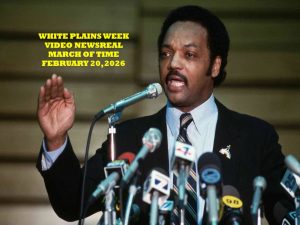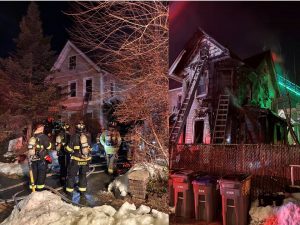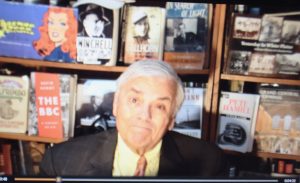Well, if you were hoping the winter respiratory season had gotten the memo to leave… it didn’t.
And measles isn’t slowing down either, with more than 1,000 U.S. cases already reported in just six weeks.
Medical evidence is moving forward while the FDA shifts in ways that could affect Americans’ access to vaccine innovation, and headlines on young colorectal cancer deaths continue to make the data feel deeply personal.
Here’s what’s happening and what it means for you.
Last week, Moderna asked the FDA to review its new mRNA flu vaccine after completing a large clinical trial.
Instead of reviewing it, the agency sent something called a “Refuse to File” letter, meaning it would not even begin reviewing their application. This means this vaccine will not go onto the long pathway to licensure (and ultimately, to your arms).
That might sound technical, but it matters. A lot.
Flu vaccines help, but they’re far from perfect. In most years, they reduce the risk of hospitalization by roughly 40–60%. (To compare, the measles vaccine is 97% effectiveness against severe disease). Flu changes quickly, which means innovative vaccines are needed.
There are two potential advantages of mRNA technology:
- Speed: mRNA vaccines can be updated much faster than traditional flu vaccines (3 months vs. 6 months), so they could catch up to flu mutations more quickly.
- Immune response: Early research suggested stronger immune responses, including T cell and memory B cell responses that were comparable to or stronger than those from enhanced flu vaccines used in older adults.
So, Moderna invested an estimated $500–700 million to develop a new mRNA flu vaccine candidate, called mRNA-1010, and tested it in a Phase 3 trial involving more than 40,000 adults age 50 and older. The study compared the mRNA vaccine with a standard licensed flu shot.
Results showed 26% better protection in adults over 50 with the mRNA flu vaccine than with standard flu shots, a meaningful gain. Side effects such as fatigue and chills were more common (as they are with mRNA Covid-19 vaccines).
Slide from Moderna; Annotated in blue by Your Local Epidemiologist.
FDA leadership objected to the main comparison: Moderna compared its vaccine to a standard-dose flu shot rather than a high-dose version often used for older adults (who are at greatest risk for severe flu disease).
At first glance, that sounds reasonable.
But Moderna did conduct a smaller trial with about 3,000 participants specifically to address this question.
In adults aged 65 and older, Moderna found that the mRNA vaccine elicited stronger antibody responses than the high-dose vaccine. For decades, this has been used as a strong proxy for a robust immune response that would protect patients.
There are three main reasons:
- The clinical trial design had already been cleared by the FDA in 2024. Even though political leadership changes between administrations, continuity matters because vaccine and drug development typically takes around 5-10 years. Companies rely on stable expectations when they make long-term investments in innovation. Political appointees changed the expectations in the last mile.
- Refuse to File decisions are rare (about 4% of applications receive them) and typically happen when major information is missing. That doesn’t appear to be the case here.
- Other regulators, like those in Europe, Canada, and Australia, have accepted the application for review.
Taken together, this hints at an increasingly partisan shift that could reshape the future of vaccine innovation.
Without the U.S. market, it’s unclear whether Moderna will move forward commercially. The company has already announced it will pause new Phase 3 trials for other infectious disease vaccines, shelving programs for viruses such as Epstein-Barr, herpes, and shingles.
What we don’t know yet is how other vaccine manufacturers will interpret this moment. If the regulatory environment feels unpredictable, investment could slow, not just in flu vaccines but also in future outbreak preparedness. In other words, this is how vaccine innovation is slowly destroyed.
What this means for you: In the short term, this means there will be no new flu vaccine option for you. The current ones should still be available this fall. In the long term, the concern is broader, and that matters because better vaccines usually arrive through incremental improvements, not overnight breakthroughs.
Another story last week hit close to home.
James Van Der Beek died at age 48 after a three-year battle with colorectal cancer. As a millennial, I’ll admit stories like this land hard. The rise in younger colorectal cancer cases feels new and unsettling, and many of us are paying attention for exactly that reason.
Most colorectal cancer cases and deaths still occur in older adults, especially those over age 65.
Among younger adults, the disease rates and death remains rare, but the rate is increasing. That trend is why researchers (and, honestly, many of us) are watching closely.
Because of this rise, in 2021, colorectal screening guidelines changed. Getting screened at 45 instead of 50 is now the standard for average-risk adults.
Source: American Cancer Society; Annotated in blue by Your Local Epidemiologist.
We don’t fully know yet.
But in epidemiology, this is called a “cohort effect,” which typically points to environmental causes rather than genetics. Leading theories include:
- Ultra-processed diets
- Low fiber intake
- Obesity & metabolic health
- Sedentary lifestyles
- Microbiome changes
The rise is likely due to multiple drivers rather than a single cause.
Screening decisions always balance benefits and harms:
- Colonoscopies are invasive.
- They have risks and costs.
- Screening millions of very low-risk people can cause harm, including false positives, unnecessary follow-up procedures, and stress.
The U.S. already screens earlier than many countries. For example, screening often starts at 50–55 in parts of Europe and Canada, while in Australia and New Zealand it starts at 45, as in the U.S.
Right now, scientists don’t have strong evidence that screening everyone under 45 would save more lives than it might inadvertently harm. That could change as data evolves.
If you are 45 or older, make sure you get screened. You have a few options, including:
- At-home FIT test every year
- At-home stool DNA test, like Cologuard every 3 years
- Colonoscopy every 10 years if normal
Any positive at-home test means you should schedule a colonoscopy.
If you are under 45 years old, it’s important to know your family history and take symptoms seriously at any age (blood in stool, persistent bowel changes, unexplained weight loss). And advocate for yourself if you have these symptoms.
A healthy lifestyle also helps reduce risk:
- Eat more fiber (only 6% of the U.S. population meets recommendations).
- Move your body regularly.
- Eat a nutrient-dense diet and limit alcohol.
These aren’t guarantees, but they do meaningfully lower risk over time.
Influenza-like illness is annoyingly sticking around. This is mainly due to one strain of flu (called flu B), as well as rising rates of the common cold and RSV. RSV is now the highest it’s been all season, in an uncharacteristically late winter season effect.
Number of positive tests, by disease over time. Source: NREVSS; Annotated by Your Local Epidemiologist.
Measles. The U.S. has now reached 1,004 cases (huge thanks to the Yale School of Public Health team for keeping nearly daily tabs). Hitting this number in just 1.5 months represents an extraordinary rate of acceleration, one we haven’t seen in a very long time.
- South Carolina outbreak is slowing down, as well as Utah and Arizona.
- Eyes are on an outbreak in Florida, with 78 cases, 57 of which are associated with the outbreak at Ave Maria University.
- Smaller outbreaks in North Carolina, Washington State, and California continue to grow.
In food safety, there’s a dangerous, extensively drug-resistant Salmonella outbreak from Rosabella Moringa powder capsules. Those who got sick had purchased it from Amazon or other online retailers. The outbreak is small thus far (seven people, three hospitalized). But typically Salmonella can be treated with antibiotics, and this is a drug-resistant strain that cannot be treated with first-line antibiotics.
What this means for you: If you have a bottle that expires in 2027, check its lot code on the bottom of the bottle. If it’s one of the 52 affected lot codes, toss it.
- A federal judge temporarily blocked proposed CDC cuts, protecting about $600 million in public health grants for California, Colorado, Illinois, and Minnesota while a legal challenge moves forward, which is a meaningful early win for public health programs that were at immediate risk.
- The administration said the cuts were meant to realign CDC spending with new policy priorities, but it is highly unusual (and possibly unprecedented) for federal funding cuts to target specific states, especially ones that do not closely align politically with the administration.
- For now, the decision keeps critical public health infrastructure, such as surveillance systems, workforce staffing, and prevention programs, running without interruption. While the legal fight isn’t over, this ruling buys valuable time and shows the courts are taking the concerns seriously.
Stay healthy out there. One of these days, we will be out of the winter respiratory season. In the meantime, I will keep you updated on any health changes that affect you.
Love, YLE
Your Local Epidemiologist (YLE) is founded and operated by Dr. Katelyn Jetelina, MPH PhD—an epidemiologist, wife. Hannah Totte, MPH, is an epidemiologist and YLE Community Manager. YLE reaches more than 425,000 people in over 132 countries with one goal: “Translate” the ever-evolving public health science so that people will be well-equipped to make evidence-based decisions. This newsletter is free to everyone, thanks to the generous support of fellow YLE community members. To support the effort, subscribe or upgrade below:























